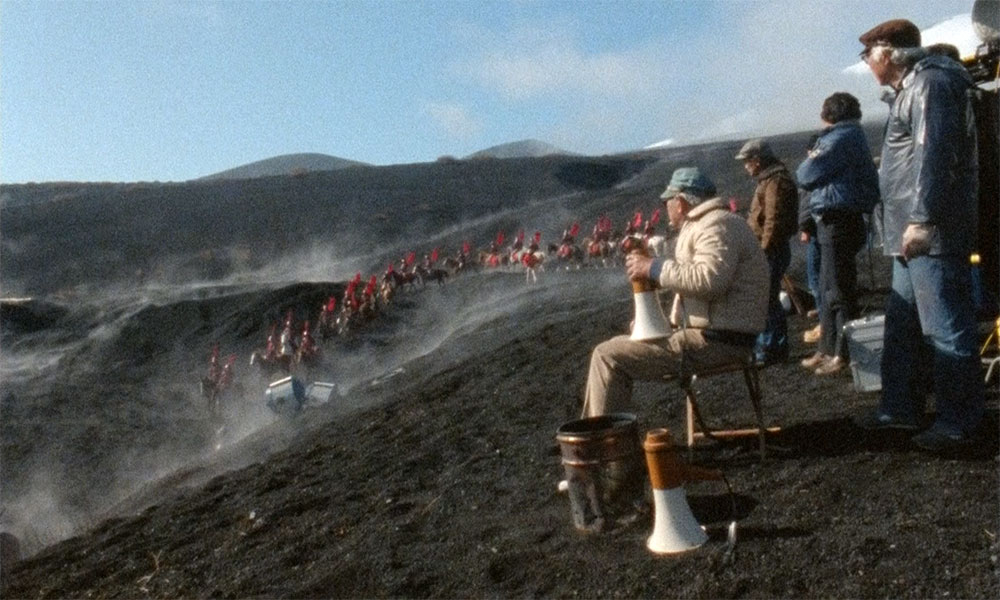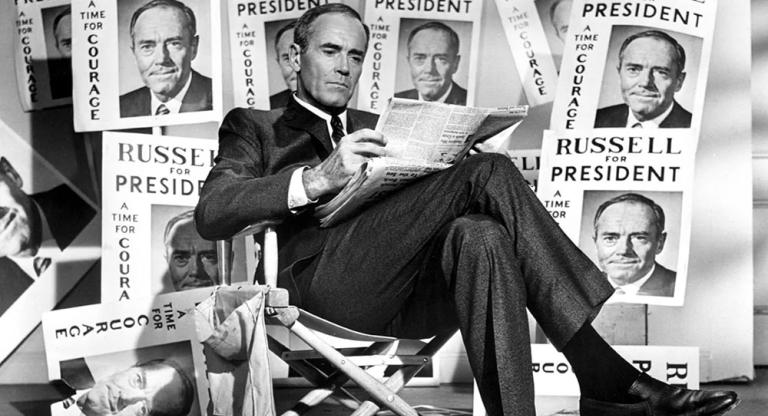Akira Kurosawa was 75 years old when he directed Ran, his adaptation of King Lear, in the fall of 1984. Chris Marker was 63 when he directed A.K. (1985), his documentary about Kurosawa directing Ran. But A.K. isn’t really about Kurosawa; very little biographical information about him is given and there are no interviews with the filmmaker in the documentary. Marker also doesn’t make it about himself. His narration is only there to provide context about the filmmaking machinery we are watching at work. A.K. is a movie about the tedium of making a movie, and one master’s reverence for another’s languorous process.
Actors’ faces are seen smeared with beige cream. Costume designers tie helmets around their heads. Extras doze off in the grass while wearing samurai armor, looking like slain soldiers. The crew dump bags of cement powder on the ground for horses to kick up. Men run across the set with sticks emitting smoke. Amidst all the chaos, Kurosawa stands quiet and amused in his jaunty green hat. He’s tiny compared to Mount Fuji, which looms over the set, and struggles to withstand the cold and high altitude. Marker captures him battling fog and rain. He can correct the length of a pause an actor takes between words, but he can’t control the wind. Is he characteristically stoic as he patiently waits for it to blow again, to wave the soldiers’ flags? Or, is he merely tired?
The “little solar system” that revolves around Kurosawa is made of dying stars: cinematographer Asakazu Nakai, production designer Yoshirô Muraki, and sound designer Fumio Yanoguchi, to name a few, worked with Kurosawa on many of the 30 feature films he made before Ran. Production manager Teruyo Nogami had been with him for 35 years, since she was a continuity editor on Rashomon. His assistant director on Ran, Ishirô Honda (the creator of Godzilla), worked with him since their time at Toho Motion Picture Company in the 1930s. Only these veterans, practiced in Kurosawa’s methods, knew how to properly film in his unique approach.
Kurosawa films with three cameras—three chances to get the right shot and three chances for Marker to ruin it. Marker rarely inserts himself or his characteristic experimental style in A.K. As a documentary, it is fairly straightforward. It is never explicitly stated why Marker is making this documentary, but his awe is palpable even through his restraint. Here is a subject at work.
A.K. screens this afternoon, May 24, at Metrograph as part of “Chris Marker’s Le Dépays.”



